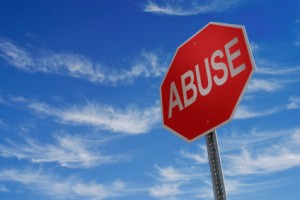Never do nothing!
 If you suspect that a child has been sexually abused, always share your concern and seek advice.
If you suspect that a child has been sexually abused, always share your concern and seek advice.
No child is exempt or protected from the possibility of child sexual abuse. As many as one in four children will be victimised, almost all by someone they know or love.
Perpetrators can be older children or adults, with the abuse often beginning gradually and increasing over time. It may involve tricking, bribing, threatening, or coercing the child into submission. Physical force is usually unnecessary, as children are usually dependent, naively vulnerable, or have been taught to obey adults. Child sex abusers use this vulnerability.
Unless the abuse is extreme, physical evidence is rare. Most children do not report sexual abuse for all sorts of reasons but even so, child sexual abuse often negatively affects long-term psychological and social well-being.
To protect your child you need to know what the definitions of sexual abuse/incest are. Teaching children about sexual abuse, with safety information appropriate to their age, can help lessen the chance of sexual abuse:
- Tell children “if someone puts their hand down your pants or does things that make you feel funny, say NO to that person and tell me right away”;
- Make sure that children know the correct names for body parts: penis, vagina, anus;
- Don’t tell children to, “Always do everything the teacher or baby-sitter tells you to do”;
- Make sure children know other trusted adults that they can tell, apart from yourself.
Remember, if you eliminate or reduce one child/one adult situations, you will dramatically lower the risk of sexual abuse.
If a child tells you that s/he has been sexually abused, stay calm. You may feel uncomfortable and may not know what to say or do. Encourage him or her to talk freely but do not press the child to tell you details. Don’t make judgmental comments. Show that you understand and take them seriously. Your response to the disclosure of sexual abuse is critical to the child’s ability to resolve and heal any effects of sexual abuse.
Assure the child that they did the right thing in telling you. A child who is close to the abuser may feel guilty or frightened about revealing the secret. Tell the child that he or she is not to blame. Most children in attempting to make sense out of the abuse will believe that somehow they caused it.
Finally, offer the child protection, and assure them that you will do all you can to stop the abuse. There are many resources available to help victims and their families. If you would like more information, please email education@sexualabuse.co.nz.